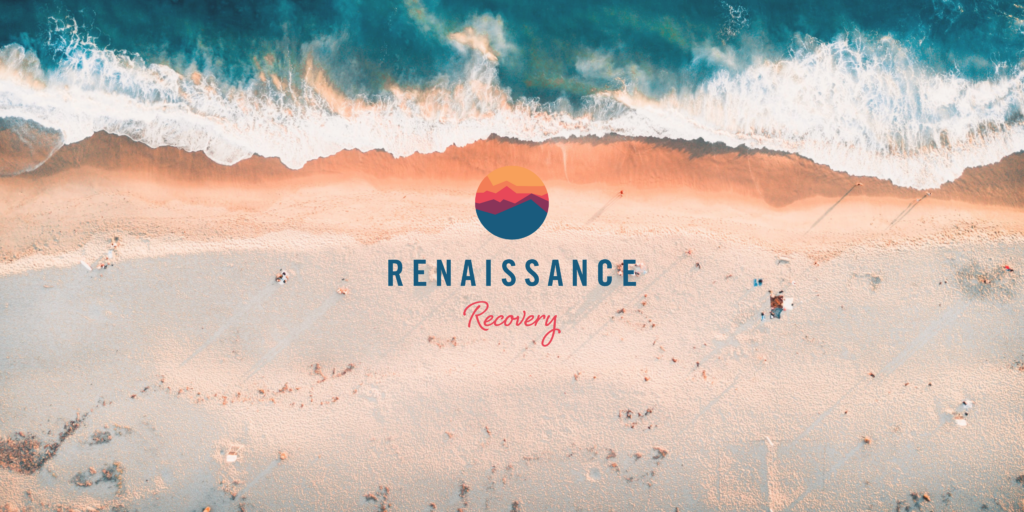The most common antidepressants include SSRIs, SNRIs, TCAs, MAOIs, as well as atypical antidepressants. Antidepressants are the most prescribed medications for mental health disorders. This class of medication does not cure depression but often alleviates symptoms.
Not all antidepressants are effective for every individual. Treatment may involve trying one or more of the different types of antidepressants available. You may require a combination of medications.
Need help getting addiction treatment?
This guide highlights some of the most common antidepressants that may work to reduce the symptoms of major depressive disorder.
Keep reading to learn the names of common antidepressants, and how they work.
How Antidepressants Work
There are five main types of the most popular antidepressants, all slightly different and working in different ways:
- SSRIs (selective serotonin reuptake inhibitors)
- SNRIs (serotonin and norepinephrine reuptake inhibitors)
- TCAs (tricyclic antidepressants)
- MAOIs (monoamine oxidase inhibitors)
- Atypical antidepressants
Common antidepressants may work differently, but they all serve to enhance the availability of monoamine neurotransmitters in the brain. Monoamine neurotransmitters are chemical messengers that include dopamine, serotonin, and norepinephrine. These neurotransmitters help govern your emotions, mood, and behavior.
Those suffering from depression have low levels of availability of these neurotransmitters in the brain. Antidepressants can effectively prevent the reuptake of these neurotransmitters, increasing their availability and positively altering the activity of neural circuits in the brain. Most popular antidepressants come with side effects, so it’s important to speak with your doctor about what to expect before starting them.

What are the Most Common Antidepressants?
The most common antidepressants include SSRIs, SNRIs, TCAs, MAOIs, as well as atypical antidepressants. Most antidepressant medications relieve the symptoms of depression by influencing the activity and reuptake of neurotransmitters. Researchers believe that certain neurotransmitters like dopamine, serotonin, and norepinephrine are associated with major depressive disorder. The most common SSRIs prescribed affect these chemical messengers in different ways.
These are the major types of antidepressants available in the United States:
SSRIs
SSRIs (selective serotonin reuptake inhibitors) are considered a first-line treatment for major depressive disorder. Most physicians start by prescribing an SSRI antidepressant. This class of antidepressants typically causes fewer adverse side effects than other types of antidepressants. They are also less likely to induce problems at higher doses than other antidepressants. Common antidepressants like Zoloft can often cause some side effects, so it’s important to speak with your doctor about what to expect.
Common SSRIs include Prozac (fluoxetine), Paxil and Pexeva (paroxetine), Zoloft (sertraline), Celexa (citalopram), and Lexapro (escitalopram), with the most used SSRI being Prozac and Zoloft.
SNRIs
SNRIs (serotonin and norepinephrine reuptake inhibitors) include Cymbalta and Drizalma Sprinkle (duloxetine), Effexor XR (venlafaxine), Pristiq (desvenlafaxine) and Fetzima (levomilnacipran).
TCAs
TCAs (tricyclic antidepressants) include imipramine, Pamelor (nortriptyline), and Norpramin (amitriptyline, doxepin, and desipramine). TCAs typically cause more side effects than later-generation antidepressants and are not normally prescribed unless other antidepressants prove ineffective.
MAOIs
MAOIs (monoamine oxidase inhibitors) include Parnate (tranylcypromine), Nardil (phenelzine), and Marplan (isocarboxazid). MAOIs are sometimes prescribed when other antidepressants are ineffective. MAOIs can interact with foods like pickles, cheeses, and wines. This class of medication may also adversely interact with some decongestants, pain medicines, and herbal supplements. MAOIs cannot be combined with SSRIs.
Atypical Antidepressants
The most prescribed atypical antidepressants include trazodone, Trintellix (vortioxetine), Viibryd (vilazodone), and Wellbutrin SR (bupropion). Unlike most antidepressants, bupropion is not frequently associated with adverse sexual side effects.
Other Medications
Your prescribing physician may recommend combining two types of antidepressants. Alternatively, they may add medications to enhance antidepressant effects. This process is called augmentation. Examples of medications used for antidepressant augmentation include Abilify (aripiprazole), Seroquel (quetiapine), and Lithobid (lithium).

What are The Most Commonly Prescribed Antidepressants?
Some commonly prescribed SSRIs include:
- Prozac (fluoxetine): A 2017 report on antidepressant use shows that Prozac is prescribed to 11% of those being treated for depression. Prozac is one of the only antidepressants approved by the FDA for children and teens.
- Celexa (citalopram): Celexa works as effectively as other SSRIs and induces similar side effects. Taking high doses of this antidepressant is associated with a rare heart rhythm condition. In the above report, 14% of those prescribed antidepressants were taking Celexa.
- Zoloft (sertraline): Zoloft can be highly effective, although it may cause diarrhea. Zoloft is the most common antidepressant, with 16% of participants surveyed in the above study taking Zoloft.
- Paxil (paroxetine): Paxil is liable to trigger sexual side effects and increased sweating.
- Lexapro (escitalopram): Lexapro is also approved by the FDA for use in teens. 8% of participants in the above study reported taking Lexapro.
Some commonly prescribed SNRIs include:
- Ultram (tramadol)
- Strattera (atomoxetine)
- Savella (milnacipran)
- Pristiq (desvenlafaxine)
- Fetzima (levomilnacipran)
- Effexor (venlafaxine)
- Cymbalta (duloxetine)
Effexor (venlafaxine) is as effective as other types of antidepressants for treating depression but is associated with a higher rate of inducing nausea and vomiting, and may also increase heart rate and blood pressure, according to the FDA.
Cymbalta (duloxetine) may also increase blood pressure, and can also trigger liver failure. This medication is inadvisable for those with liver disease or for those who drink lots of alcohol.
Some tricyclics include:
- Vivactil (protriptyline)
- Tofranil (imipramine)
- Surmontil (trimipramine)
- Silenor (doxepin)
- Pamelor (nortriptyline)
- Norpramin (desipramine)
- Elavil (amitriptyline)
- Asendin (amoxapine)
Some commonly prescribed MAOIs include:
- Parnate (tranylcypromine)
- Nardil (phenelzine)
- Marplan (isocarboxazid)
- Emsam (selegiline)
Some commonly prescribed atypical antidepressants include:
- Trintellix (vortioxetine)
- Wellbutrin (bupropion)
- Desyrel (trazodone)
Wellbutrin is one of the most prescribed atypical antidepressants. This medication has a lower risk of gastrointestinal and sexual side effects.
Antidepressant Rehab and Detox
Antidepressants are one of the most common SSRIs prescribed for treating mental health disorders like depression, anxiety, OCD, trauma, and more. These medications can be incredibly helpful for those struggling with mental health and co-occurring (mental health and substance abuse) disorders, however, some unwanted side effects can occur with long-term use and large prescribed doses.
Individuals who have taken antidepressants long-term and want to stop taking the medication often need to wean themselves off in a safe, medical detox as their body chemistry has adjusted to accommodate the drug.
In cases of physical dependence to SSRIs, withdrawal symptoms can occur like:
- Anxiety
- Depression
- Insomnia
- Vomiting
- Body aches
- Tremors
- & more
It’s important to note that physical dependence is not addiction. Common SSRIs are non-addictive, meaning they don’t have any significant potential for abuse. However, when coming off antidepressants, it’s important to seek your prescribing doctor’s guidance and undergo a supervised medical detox. During a supervised detox, you’ll have access to clinical care to help you detox in a safe, comfortable way. Your doctor can help you understand whether or not you’ll need a medical detox for SSRI withdrawal.

Get Antidepressant Rehab at Renaissance Recovery in Huntington Beach
At Renaissance Recovery Center near Huntington Beach, you can engage with structured and supportive treatment for mental health conditions like depression and all types of addictions. With our intensive outpatient programs, you can remain anchored to your everyday commitments without compromising the quality of the care you receive.
Choose from the following treatment programs at our luxury beachside antidepressant rehab in Southern California:
- PHPs (partial hospitalization programs)
- IOPs (intensive outpatient programs)
- Dual diagnosis treatment programs (for co-occurring disorders)
- Virtual IOPs (remote rehab programs)
All our treatment programs offer individualized treatment that combines holistic and science-based treatments. These may include:
- MAT (medication-assisted treatment)
- Individual counseling
- Group therapy
- Psychotherapy
- Family therapy
- Holistic therapies
- Aftercare
At Renaissance Recovery Center’s prescription drug rehab in California, the team is committed to your sustained recovery from drug addiction, alcoholism, and mental health issues. Call admissions today at 866.330.9449.



